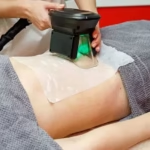
For many individuals with mental health or substance use disorders, intensive outpatient programs (IOPs) provide an ideal balance between comprehensive treatment and maintaining daily life responsibilities. These structured programs offer frequent therapeutic services while allowing participants to continue living at home, attending work or school, and maintaining family connections. Indianapolis offers several IOP options that provide this middle ground between inpatient care and traditional outpatient therapy.
Understanding Intensive Outpatient Treatment
Intensive outpatient programs typically involve several treatment sessions per week, usually lasting 3-4 hours each. This format provides substantial therapeutic support without the round-the-clock supervision of inpatient settings. IOPs serve both as step-down options following hospitalization and as alternatives to inpatient care for those who don’t require 24-hour monitoring.
Options Behavioral Health offers specialized intensive outpatient programs for both adolescents and adults. As an Acadia Healthcare company, this Indianapolis facility provides structured IOP services addressing various mental health conditions and substance use disorders. Their approach combines group therapy, individual counseling, medication management, and skill development within a flexible schedule that accommodates work, school, and family commitments.
The intensive outpatient program at Options Behavioral Health Hospital typically involves 3-5 sessions weekly, with programming focused on developing coping skills, managing symptoms, and building recovery foundations. Their IOP serves both as a transition from more intensive care and as an entry point for individuals who need substantial support but can safely maintain community living.
IOP Options Throughout Indianapolis
When exploring mental health treatment alternatives in Indianapolis, several organizations provide noteworthy intensive outpatient programs alongside Options Behavioral Health.
Northstar Psychological Center offers specialized IOPs for various mental health conditions, with tracks addressing mood disorders, anxiety, trauma, and other specific concerns. Their focused approach allows clients to work alongside others facing similar challenges, creating communities of shared experience and mutual support.
Aspire Indiana Health provides intensive outpatient services through multiple locations across central Indiana, increasing accessibility for individuals outside the immediate Indianapolis area. Their programs integrate mental health and addiction services with primary care, creating comprehensive treatment experiences.
Parkview Behavioral Health offers IOPs with both daytime and evening scheduling options, making intensive treatment accessible for those with various work schedules and family responsibilities. This flexibility helps remove practical barriers that might otherwise prevent individuals from accessing needed care.
Centerstone’s Matrix Intensive Outpatient Program provides specialized services for substance use disorders, incorporating evidence-based approaches specifically developed for addiction recovery. Their structured model includes individual counseling, group therapy, family education, and recovery skills development.
Core IOP Treatment Components
Effective intensive outpatient programs incorporate several essential elements found at Options Behavioral Health and other Indianapolis providers. Group therapy forms the foundation of most IOP experiences, creating therapeutic communities where participants develop insights, receive feedback, and build supportive connections. These groups typically address specific skills and challenges related to recovery and symptom management.
Individual therapy complements group experiences by addressing personal concerns that may require privacy or individualized approaches. These sessions help participants apply group concepts to their specific situations while addressing underlying issues that contribute to their conditions.
Family involvement enhances treatment effectiveness, particularly when participants live with family members during the IOP experience. Family sessions help improve communication, develop healthy boundaries, and create home environments that support recovery and mental wellness.
Psychiatry services within IOP settings provide medication evaluation, prescription, and monitoring when appropriate. This integration ensures that medication approaches align with therapeutic interventions, creating comprehensive treatment experiences.
Practical Considerations for IOP Participation
Successful IOP experiences require practical planning around schedules, transportation, and daily responsibilities. Options Behavioral Health works with participants to address these practical concerns, developing realistic schedules that balance treatment needs with life obligations.
Insurance coverage for intensive outpatient programs varies between plans but generally includes specific authorization requirements and session limits. Options Behavioral Health and most IOP providers assist with insurance verification and authorization processes, helping remove financial barriers to accessing this level of care.
Transportation considerations play important roles in IOP accessibility, particularly for individuals without reliable private transportation. Some programs offer telehealth options for certain components, increasing accessibility for those with transportation challenges or those living in outlying areas.
Transitioning Through Levels of Care
Many individuals move between different treatment intensities as their recovery progresses. Options Behavioral Health creates seamless transitions between inpatient care, partial hospitalization, intensive outpatient programming, and standard outpatient therapy. This continuity helps maintain treatment momentum while adjusting support levels to match changing needs.
For some, intensive outpatient programs serve as entry points to the treatment system, providing substantial support without requiring life disruption. For others, IOPs offer structured step-down experiences following more intensive care, helping solidify gains while gradually increasing independence.
By providing intensive outpatient options with various specializations and scheduling formats, Indianapolis mental health providers create accessible pathways for individuals needing substantial therapeutic support while maintaining community connections. These programs bridge critical gaps in the treatment continuum, ensuring appropriate care remains available regardless of where individuals find themselves in their recovery journeys.







